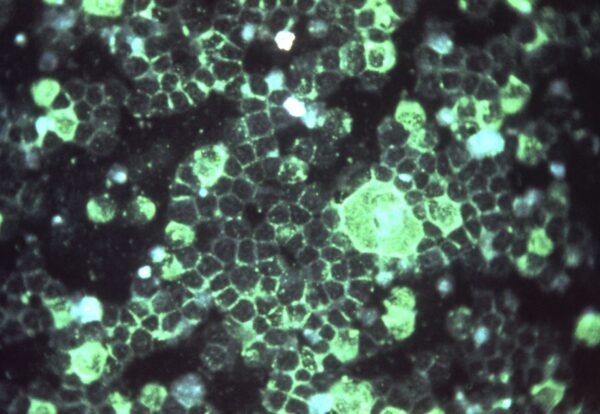
Respiratory syncytial virus had stymied vaccine research efforts for decades. Now there are two vaccines approved for the pathogen.
The FDA on Wednesday approved Pfizer’s RSV vaccine, which carries the brand name Abrysvo. The regulatory decision follows the approval of GSK’s RSV shot, Arexvy, in early May. The approvals of both vaccines cover the prevention of lower respiratory tract disease caused by RSV in those age 60 and older.

With the Rise of AI, What IP Disputes in Healthcare Are Likely to Emerge?
Munck Wilson Mandala Partner Greg Howison shared his perspective on some of the legal ramifications around AI, IP, connected devices and the data they generate, in response to emailed questions.
RSV typically leads to symptoms resembling those of the common cold in healthy people. But in infants, the elderly, and those with weakened immune systems, the pathogen can cause a serious and potentially deadly infection. The Centers for Disease Control and Prevention estimates that each year, RSV infection results in between 60,000 and 160,000 hospitalizations in those 65 and older and as many as 10,000 deaths in that age group.
The approved RSV vaccines from Pfizer and GSK as well as others in development build on National Institutes of Health research regarding a key protein that the virus uses to enter cells. NIH scientists found that antibodies to a prefusion version of this protein are highly effective at preventing infection. The antigens in Abrysvo are two version of pre-fusion F (preF) proteins engineered to elicit an immune response that protects against the RSV A and B strains. The Pfizer vaccine does not include an adjuvant, an ingredient that boosts the immune response.
FDA approval of Abrysvo is based on the results so far from a placebo-controlled Phase 3 clinical trial that enrolled about 37,000 people. On the main goal of preventing severe lower respiratory tract infection, interim results showed vaccine efficacy of 85.7%. Results from the clinical trial were published in April in the New England Journal of Medicine. The Phase 3 study spans two RSV seasons. Pfizer said efficacy data are still being collected from the second RSV season.
The Pfizer RSV vaccine was well tolerated by study participants. The most common adverse effects reported in the study included fatigue, headache, injection site pain, and muscle pain. Three patients in the Abrysvo arm experienced serious adverse effects that were deemed possibly related to the vaccine, according to the prescribing information. One was Guillain-Barré syndrome, in which an immune response damages nerve cells. The other was Miller Fisher syndrome, a nerve disease related to Guillain-Barré. A third participant experienced hypersensitivity.
Guillain-Barré was observed in a study evaluating GSK’s RSV shot in older adults. The FDA’s approval of that vaccine includes a post-marketing requirement that the company conduct additional testing to assess the risk of Guillain-Barré as well as acute disseminated encephalomyelitis, a type of brain and spinal cord inflammation. The approval of Pfizer’s vaccine carries no such post-marketing requirements.
“A vaccine to help prevent RSV had been an elusive public health goal for more than half a century,” Annaliesa Anderson, senior vice president and chief scientific officer, vaccine research and development, Pfizer, said in a prepared statement. “Today’s approval is a monumental step forward in delivering on Pfizer’s commitment to help alleviate the significant burden of RSV in higher-risk populations, which includes older adults.”
The next step for both the Pfizer and GSK RSV vaccines is a June 21 meeting of the CDC’s Advisory Committee on Immunization Practices. The body will discuss the vaccines and make recommendations on their use in older adults. Like GSK, Pfizer anticipates its vaccine will become available in the third quarter in advance of the RSV season.
By this coming fall, the FDA might already have a decision on the use of the Pfizer RSV vaccine in pregnant women to offer protection to infants. Sanofi and AstraZeneca aim to protect infants with an antibody drug. The product, approved last year in Europe where it is branded as Beyfortus, is currently under FDA review. Meanwhile, an RSV vaccine from Moderna posted positive Phase 3 data and the company has said it expects to seek regulatory approval in the first half of this year.
Public domain image by the CDC














